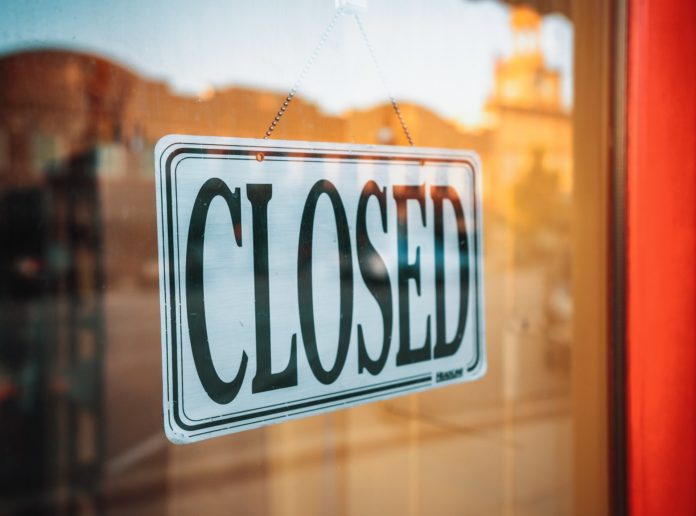Business failure by definition is a business that has closed or ceased operations for whatever reason.
The result of a business failure in most cases is the loss of creditors’ investments in terms of funds, time and other investments put into such a failed business.
Whether you’re starting a business or expanding one, one of your primary concerns may be avoiding business failure. The percentage of businesses that fail within their first few years is quite alarming.
Unfortunately, business failure is commonplace: 20 percent of small businesses fail within their first year, and 96% fail over 10 years. What’s even wild is that the remaining 4% aren’t necessarily successful – most of them may just be staying afloat – barely surviving.
How can we prevent small business failure? Let’s explore the some reasons why businesses fail and learn how to overcome business failure, they can be avoided. But first, what does failure mean to you?
Contents
Eight Primary Reasons Why Businesses fail and How To Prevent Business Failure
Many business owners want to know why business fail; many more want to know how to prevent failure. This article is an expose and guide on how to navigate these business pitfalls. Plesae let me know your thoughts on the comment section.
Business failure Definition – Failure is a relative term. What others may consider as failure may be seen as pivoting or something else by others. For the purpose of this article, a business is deemed a “business failure” if it has ceased to exist.
However, there may be entirely legitimate reasons why a business may cease to exist, irrespective of the number of years it has existed. For example, the owner may be considering retirement and decide to shut down the business rather than try to sell it or transfer ownership; this isn’t a failure.
Here Are Some Causes of Business Failure
Failure is interesting – It’s part of making progress. you never learn from success, but you do learn from failure.
James Dyson, British inventor
1. Problems with business plans
The foundation of a successful business is a solid and realistic business plan. Your plan should detail your business’s goals, how it will achieve those goals, as well as potential problems and solutions. It is important as a business owner to understand these major pitfalls and how to prevent failure.
Having a business plan and following it is essential to prevent failure. Trying to double your spending or change your strategies will only lead to business failure. Keep your business plan constantly updated – No business plan is extensively accurate. If it is inaccurate, it is better to find out what is wrong, fix it, and follow a new strategy rather than making significant changes based on a few quick observations.
If you make more mistakes, the more expensive your business will become and the greater the likelihood of failing. You could prevent failure by having a well researched and solid business plan.
2. Failing to Conduct Adequate Market Research
Imagine that you’ve always wanted to open a real estate agency business, and now that you have the means to do so, you lose sight of the fact that the real-estate market has collapsed, and there are already too many agencies in the area, making it extremely difficult for you to break into the business. (Note that this is only an example and does not represent the current state of Real Estate).
In addition to conducting a solid market research, you could prevent failure by studying what you business competitors do in the market.
3. Bad location, online presence, and marketing
If foot traffic is your business’s primary source of revenue, the wrong location could be catastrophic. However, a weak online presence could be just as dangerous. Nowadays, your company’s online presence and social media strategy can be as important as its physical location. Having an online presence will make people aware that they can give you their business. If your business needs are already there, the next step is showcasing your availability and visibility.
Marketing is similar to this. You must not only make sure your marketing reaches people but the right people as well. Make sure your marketing strategy aligns with the audience you are trying to reach. An Internet company may not benefit from giant billboards, just as heavy-construction businesses may not benefit from online advertising. When the need for your product or service is already established, ensure you’re reaching out to the people who need it.
4. Insufficient funding
Cash is king. Supervise your cashflow and avoid going into unnecessary business debts.
When you have just started a business and things aren’t going well, and your business is struggling, it’s not a good time to ask for another loan. As an entrepreneur, you can plan to start with enough money to finance your business until the point where cash starts to flow into the business.
At the beginning, stretching your finances might mean that your business never gets off the ground, and you’ll still owe a lot of money.
5. Too rapid expansion

After your business has been established and considered successful, it’s time to expand. However, expanding is like starting all over again. Be aware of the new markets and areas into which your business plans to expand to. Make sure that when you expand, you do not lose the scope and focus of your company. It is important to understand new products and services.
Businesses that expand too rapidly and do not take the time to research, strategise, and plan, may suffer unnecessary financial drain and ultimately lead to a failed business.
6. Staying rigid
Don’t get complacent after you do all your planning, set up your business, and gain customers.
It is possible that the market need you’re fulfilling won’t always exist. Keep an eye on market trends and know when to adjust your business plans and strategy. Not reacting appropriately to changes in the marketplace is as risky as not growing.
Though some businesses thrive at the time when they need to change or adapt, their successes make it difficult for them to realise that in order to be successful, you need to embrace change. In most cases businesses stay rigid for fear of business failure in an unchatted territory.
Companies such as Music or Blockbuster videos can serve as examples of how a thriving industry can undergo dramatic changes such that if they refuse to adapt to changes in the marketplace, they end up as failed businesses. Examples of such businesses are: Blacberry, Enron, and Kodak.
You can adjust your strategy to remain successful by staying on top of major trends.
RELATED: The Global Companies that Failed to Adapt to Change
7. Not Providing Adequate Value
Most entrepreneurs do not understand how to provide real value to their customers. It is important to know what your customers want and how to solve their pains. If your business does not provide adequate value to an adequate number of customers to derive profit, then it would inevitably fail.
How many businesses fail each year?
More than half of all small businesses fail within a year, according to the SBA estimates in a March 2013 Forbes article. Also from the SBA, 10 to 12 percent of small businesses with employees close each year. In contrast, sole proprietorships fail three times more frequently than this. Some of this can be attributed to the ease with which sole proprietorships can be opened and closed.
Fundera’s research also found that about 20 percent of small businesses fail within their first year based on several research and studies. Thirty percent of businesses will fail within the second year. Nearly half will fail by the end of the fifth year. Approximately 30% of businesses will remain by the end of the decade, representing a failure rate of 70%.
Read also: How to start a consulting business in Nigeria
- Startup 5 Major Reasons Why Businesses Fail Fast – Solution to business failure in Nigeria
- How to Best Protect Your Business and Its Employees
- 7 Mistakes Startups Make that Cost Their Business
- How To Build Systems And Structures In Your Business
Industries with the best survival rates
The industries projected to be the fastest-growing in the next few years are alternative energy, health care, and information security. Entrepreneurship success rates in these fields are expected to be more than average.
Occupational growth for solar and wind energy installers and technicians is predicted to be 63% and 57%, respectively, by 2028. In that period, home health care aide jobs are expected to increase by 37%, and physician assistant and nurse practitioner jobs by 31% and 28%, respectively. The number of jobs for information security analysts is expected to rise by 32%.
Jobs are also expected to grow in the following industries by 2028:
- Software development: Jobs in software development are projected to go up by 26%.
- Physical therapy: Physical therapy assistants and aides will likely see 27% and 23% growth, respectively.
- Forestry: Positions for fire inspectors and prevention specialists are expected to grow by 24%.
Industries with the lowest survival rates in Nigeria
From 2018 to 2028, a diverse set of industries will likely experience declines, including:
- Communications equipment manufacturing (-24%)
- Wired telecommunications carriers (-127%)
- Apparel and leather manufacturing (-40%)
- Printing and related activities (-85%)
Source: Bureau of Labour Statistics
In conclusion
All of these reasons why businesses fail shouldn’t scare or discourage you from starting your business. On the contrary, the aim is to arm with helpful information to know the pitfalls to avoid, especially as a new business.
Although the rate at which businesses fail in the first two years are around 20%, it does not mean that your business has a high rate for failure. By researching and planning your new business, you can avoid many pitfalls and stand a good chance of making it to 15 years and beyondand probably have the chance to take your business to the level of an IPO.

























